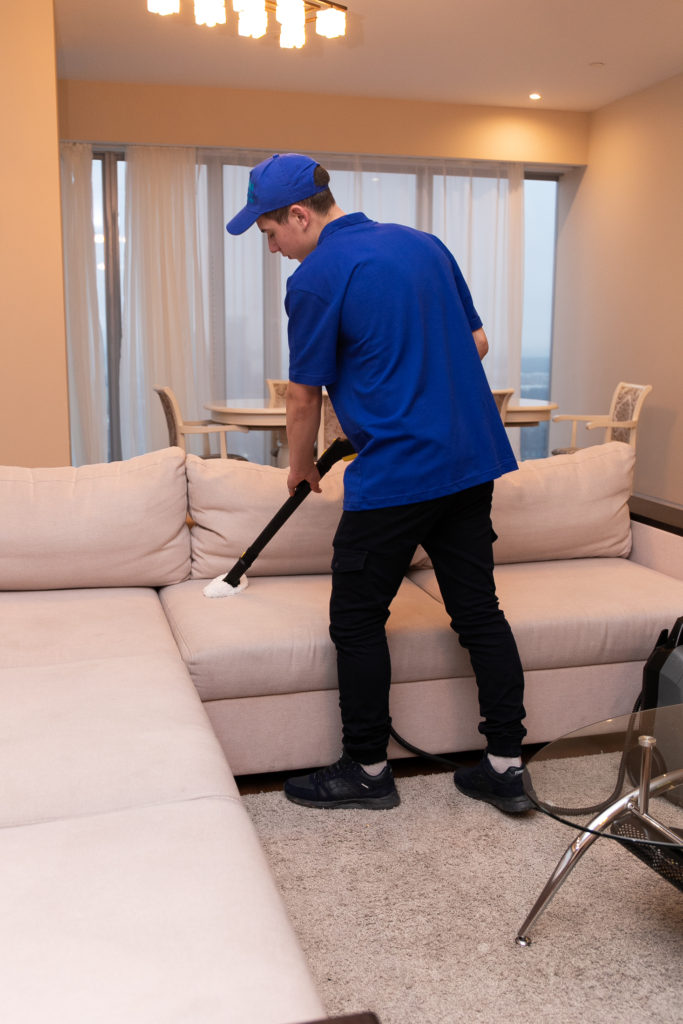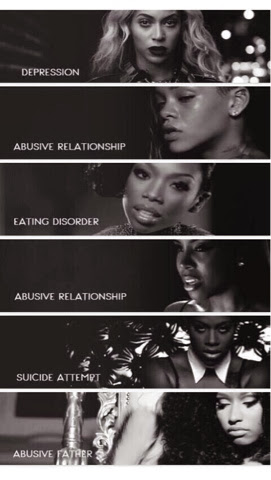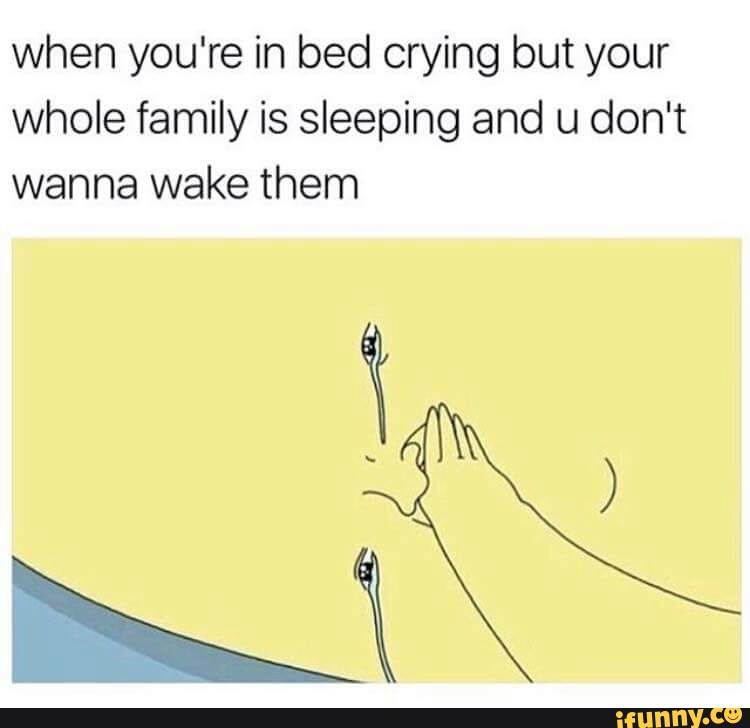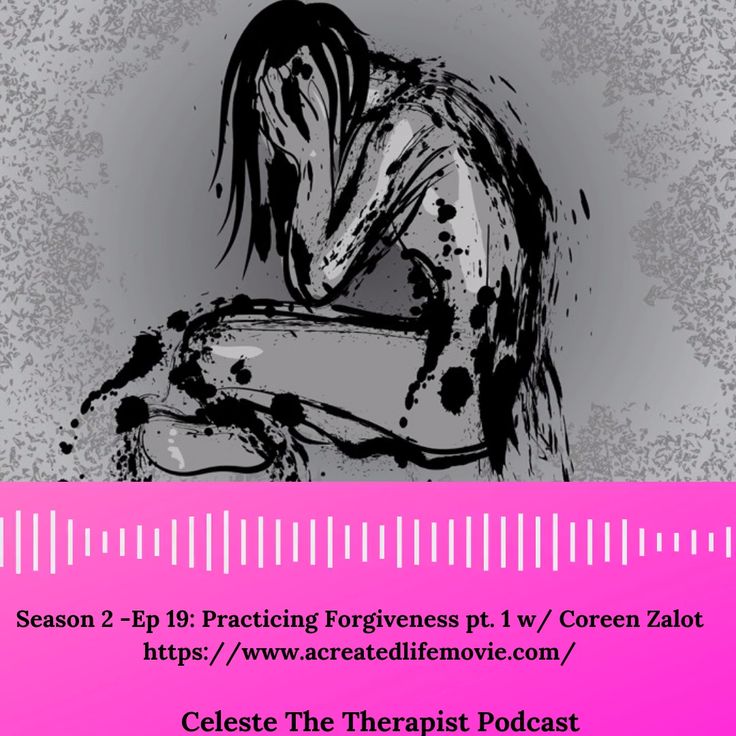Obsession with cleaning
Understanding OCD and Cleaning
You like your kitchen sink to shine, and your stove can never be clean enough. Does that mean you have obsessive-compulsive disorder (OCD)?
Answering that question requires a deeper look into what OCD is — and why some people with OCD are compelled to clean.
The relationship between OCD and cleaning hinges on obsession (recurrent, intrusive thoughts) and compulsion (repeated behaviors or actions).
Obsessions and compulsions intertwine in OCD, and they can drive an overwhelming desire to repeatedly clean things.
The new edition of the Diagnostic and Statistical Manual of Mental Disorders (DSM-5) is an authoritative guide to psychological conditions. It describes OCD as a disorder that causes people to experience distressing thoughts and mental images that won’t go away.
In response to these unwanted thoughts, people with OCD may feel an intense urge to repeat certain actions. The actions may be physical behaviors (such as arranging objects in a particular order) or mental ones (like praying in a particular way).
Some people feel that completing these actions will neutralize a threat, make an obsessive thought stop, or relieve the anxiety that unwanted thoughts create.
DSM-5 emphasizes that compulsive acts can take up a lot of time. They can disrupt a person’s social, academic, or professional life. The need to precisely perform rituals and compulsive acts can cause serious anxiety.
OCD, then, is much more than a desire to work or live in a clean environment or a preference for neatness. It involves a sometimes debilitating and distressing need to clean and reclean specific areas or items.
Although DSM-5 doesn’t list subtypes of OCD, some researchers group obsessions and compulsions into “symptom dimensions.” These clusters of symptoms share similar anxieties and behavior patterns.
Here’s a brief look at the symptom dimensions as currently described in scientific literature:
Contamination and cleaning
Some people have an extreme fear of becoming contaminated by germs, bodily fluids, or other substances — including abstract contaminants like evil or bad luck.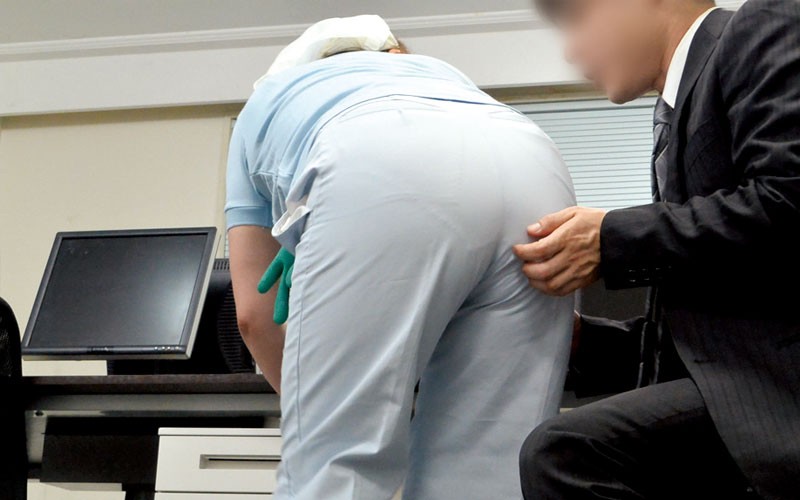 People may even fear that they’re contaminating others.
People may even fear that they’re contaminating others.
An obsession with contamination can lead to a cleaning compulsion. People may believe that by cleaning objects or spaces in a specific order or with a particular frequency, they can avoid or recover from contamination or infection.
Symmetry and ordering
Some people become preoccupied with arranging objects in a certain order, often because of a kind of magical thinking or magical ideation. For example, individuals with OCD may think, “If I don’t line up my toiletries exactly this far apart, someone is going to harm me today, or if I clean my sink five times this morning, my brother won’t get sick today.”
Researchers have found that people with symmetry obsession and an ordering compulsion often have trouble expressing anger in healthy ways and may have a personal history of trauma.
Doubt about harm and checking
Some people have intrusive thoughts and fears about harming others or being harmed themselves. An excessive dread of being responsible for harm can lead to compulsive checking behaviors — for example, repeatedly making sure you’ve turned off the stove or an iron.
An excessive dread of being responsible for harm can lead to compulsive checking behaviors — for example, repeatedly making sure you’ve turned off the stove or an iron.
People affected by checking compulsions describe a feeling of incompleteness unless they perform certain rituals or behaviors. Other common compulsions include repeating mantras, prayers, or safety words to ward off danger or reduce anxiety.
Similar to symmetry and order compulsions, checking compulsions have been associated with anger and trauma.
Unacceptable thoughts and mental rituals
Some people experience frequent intrusive thoughts about things that violate their own sense of morality and goodness. Often, these unwanted thoughts involve sex, violence, or religious images.
Although people with this symptom cluster generally have no history of violence, they spend a lot of time and energy trying to suppress or erase these thoughts. Trying to squelch the thoughts can lead to even more anxiety, which tends to produce more unwanted thoughts — resulting in an unhealthy cycle.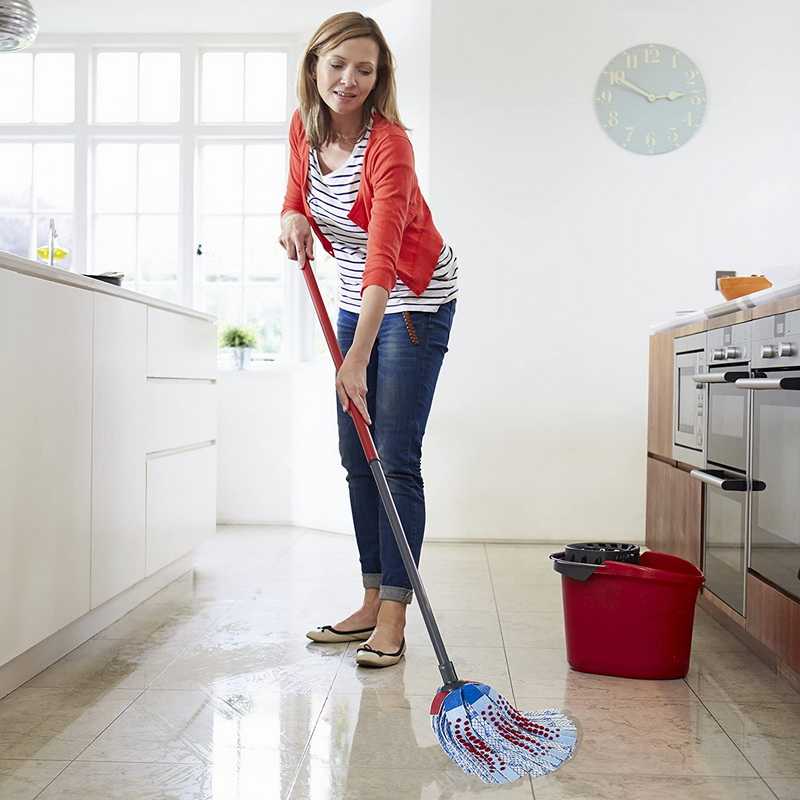
Two of these symptom dimensions have a clear link to cleaning tasks: contamination and cleaning as well as symmetry and ordering.
You can’t prevent OCD, though doctors say an early diagnosis and intervention may mean you spend less time dealing with the difficulties this disorder can present.
About 2 percent of the general population has OCD. The disorder tends to appear at an earlier age in males. By midlife, though, more women than men have symptoms of OCD.
Here’s what we know about the risk factors, causes, and triggers of this disorder.
Genetics
Researchers continue to explore the influence of genetics on whether someone develops OCD.
As of now, scientists know that if your parent or sibling has OCD, you’re more likely to develop the condition. Some studies have found that the symptom dimensions involving OCD cleaning and ordering are especially likely to run in families.
Brain structure
Researchers are finding differences in the brain structures of people with OCD, along with differences in how their brain functions.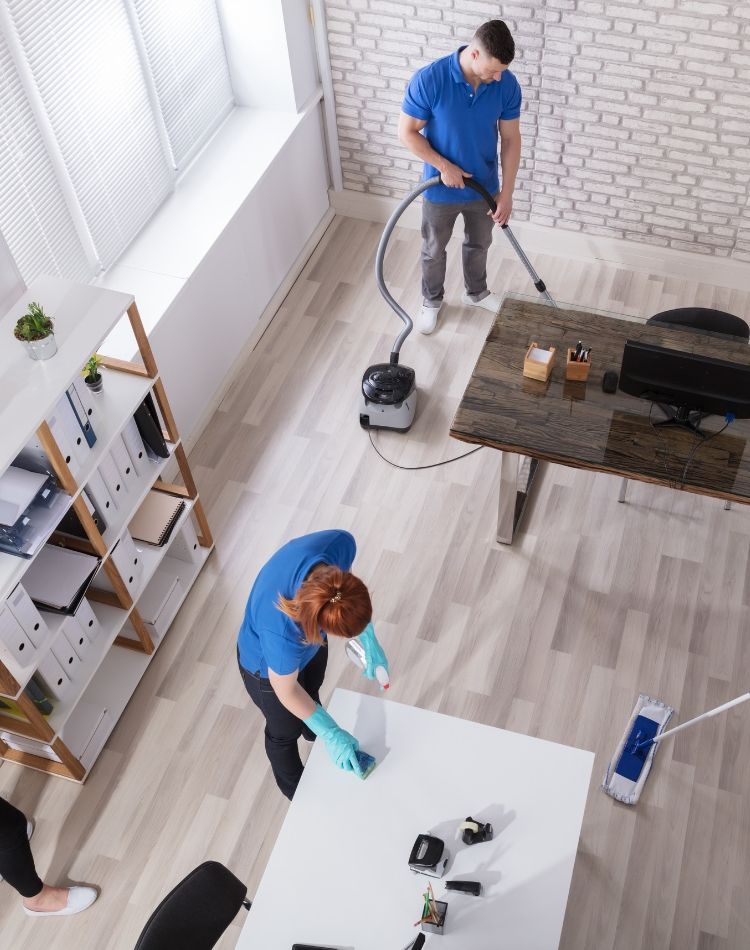
For example, one 2017 study found that in people with OCD, there’s greater connectivity and activity in parts of the brain associated with habit formation and in parts that process emotions — especially fear.
Brain scans also reveal differences in estrogen receptors and in the amount of white and gray matter in the brains of people with the contamination and cleaning symptom dimensions.
Understanding differences in brain structures is important because it may point to new directions for treating the condition.
Environment
Behavioral researchers have long known that stress and trauma are associated with a higher risk of developing OCD.
For example, 2015 study involving 22,084 Swedish twins indicates that two kinds of childhood trauma are particularly likely to lead to symptoms of OCD: abuse and family disruption.
OCD symptoms include not only obsessions and compulsions, but significant anxiety as well. You may feel stressed in circumstances where you feel out of control or uncertain.
If you have OCD and contamination or cleaning are important to you, you may notice that you:
- feel disgust or fear over certain objects or substances, including dirt, illness, body secretions, trash, or chemicals
- believe you or others can be contaminated by magical or spiritual means — such as by saying certain names or numbers
- have a strong urge to wash your hands or shower frequently
- use a very specific process or ritual for washing yourself or your surroundings
- change clothes several times a day
- avoid places or people that may have been infected
- conduct precise decontaminating rituals
- refuse to allow others into your safe spaces
- damage your skin or body through excessive cleaning
If you have OCD and it’s important for you to keep things symmetrical or arranged in a precise order, you may notice that you:
- experience serious anxiety if certain things are not arranged “just right”
- feel an urge to repeat what happens to one side of your body on the other side of your body
- fear that if something is unbalanced or uneven, a catastrophe could happen
- perform touching or tapping rituals
- count things habitually
A doctor, psychologist, or psychiatrist can diagnose your condition by interviewing you about your thought and behavior patterns or by asking you about symptoms listed in DSM-5.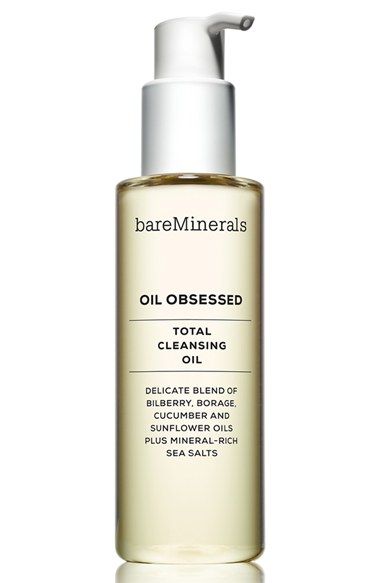
A physical examination could help your doctor determine whether an underlying health condition is causing your symptoms.
OCD is well researched. Doctors, psychiatrists, and psychologists have found a number of treatments that can decrease your symptoms and improve your daily functioning.
Cognitive behavioral therapy
Cognitive behavioral therapy (CBT) is an effective treatment for many people dealing with OCD.
In a CBT session, you meet with a therapist who can help you decrease your anxiety by identifying thought patterns that distort your view of reality and cause stress. Your therapist can then help you learn to restructure these thoughts in productive ways.
Studies have shown that CBT strengthens connections throughout your brain, especially in areas that deal with your ability to control your thinking and balance your emotions.
Online therapy options
Read our review of the best online therapy options to find the right fit for you.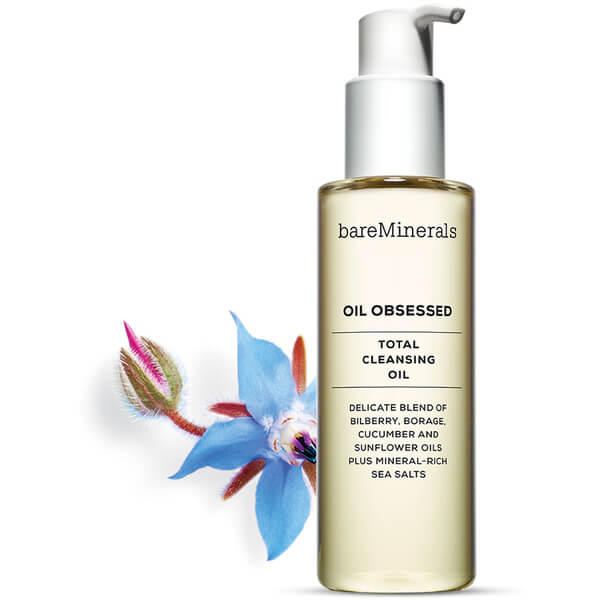
Exposure and response prevention
Exposure and response prevention (ERP) is another type of therapy known to be effective in treating OCD.
In ERP, you and your therapist work together to identify external and internal triggers that cause you stress and make you want to behave compulsively.
You also describe your obsessive thoughts and your compulsive behaviors to your therapist. You explain what you fear will happen if you don’t follow through with a behavior or rituals.
Your therapist then helps you practice gradually facing stressful situations — both in your imagination and in real life — without using your compulsions.
Medication
Your doctor may prescribe an antidepressant to reduce your OCD symptoms. Some of the more common medications prescribed for OCD are:
- Anafranil
- Fluvoxamine
- Paxil
- Prozac
- Zoloft
If you take one of these medications to treat OCD, it’s important to talk to your doctor before you change your dose.
You shouldn’t stop taking your medication suddenly, because in some cases it can cause:
- a relapse of your symptoms
- serious changes in your mood
- an increased risk of suicidal thoughts
Deep brain stimulation
Your doctor may recommend deep brain stimulation (DBS) if more conservative treatment methods aren’t working for you.
During DBS, doctors implant electrodes in targeted areas of your brain. The electrodes produce electrical pulses that may help change your thoughts and behaviors.
Transcranial magnetic stimulation
Transcranial magnetic stimulation (TMS) is another approach to consider if other treatments aren’t helping you.
During TMS, a doctor places an electromagnetic coil on your head. Magnetic fields interact with nerve cells in your brain in an attempt to lessen your OCD symptoms.
If you have OCD and a cleaning or ordering compulsion, your symptoms can be treated. There’s a good outlook for people who seek treatment for their OCD.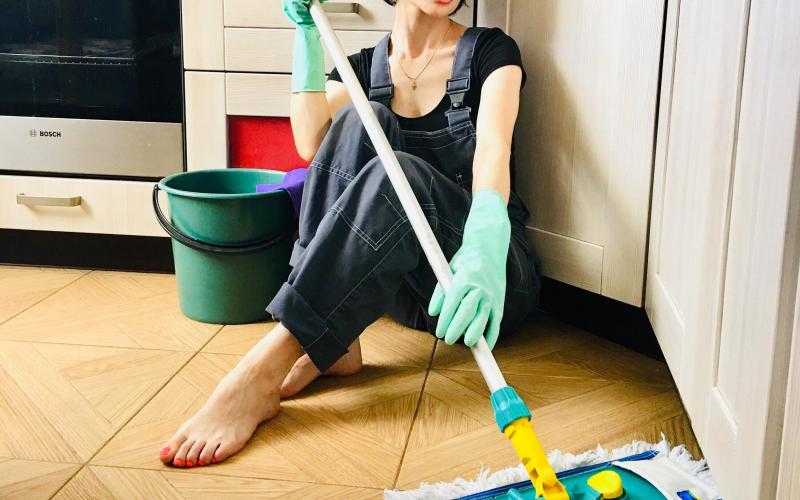
The best outcomes happen when people are diagnosed early and start a robust treatment program right away.
Sometimes OCD goes into remission on its own, especially if it initially appears during childhood. Other times people need long-term treatment to keep symptoms in check.
Being a perfectionist about cleaning doesn’t necessarily mean you have OCD. Individuals with OCD experience persistent intrusive thoughts and a compulsion to carry out certain ritualistic behaviors.
OCD produces serious anxiety. Compulsive cleaning is often related to fears of contamination, and compulsive arranging can be caused by a need for symmetry and balance.
This disorder can be treated with therapy, medications, and procedures that stimulate parts of your brain known to be affected by the disorder. If you are diagnosed early and you participate in a treatment program consistently, it’s possible you’ll be able have a good quality of life.
What Causes Compulsive Cleaning? - Renewed Freedom Center
Maintaining a clean and tidy home is usually a sign of good emotional health. When cleaning becomes obsessive, however, an underlying mental disorder may be the cause. Obsessive fears of contamination along with cleaning and sanitizing compulsions is one of many subtypes of OCD (obsessive-compulsive disorder). Obsessive compulsive cleaners are compelled to clean, spending hours every day in ritualized activities that offer only temporary relief, leaving them prisoners of their own behavior, while alienating them from friends and loved ones.
When cleaning becomes obsessive, however, an underlying mental disorder may be the cause. Obsessive fears of contamination along with cleaning and sanitizing compulsions is one of many subtypes of OCD (obsessive-compulsive disorder). Obsessive compulsive cleaners are compelled to clean, spending hours every day in ritualized activities that offer only temporary relief, leaving them prisoners of their own behavior, while alienating them from friends and loved ones.
Here is what causes this type of obsessive cleaning to take hold.
Clean Freak or Cleaning Disorder?
OCD cleaning goes beyond a simple need to maintain an orderly, hygienic home. It is a symptom of one of the many subtypes of obsessive compulsive disorder. Sufferers of compulsive cleaning may have a pervasive feeling of contamination by dirt, germs environmental contaminants, or chemical toxins. They may fear getting ill or contracting certain diseases, such as the flu, cancer, or HIV. Their compulsive cleaning may even be associated with magical thinking that if they washed/cleaned sufficiently, a negative catastrophic consequence can be avoided.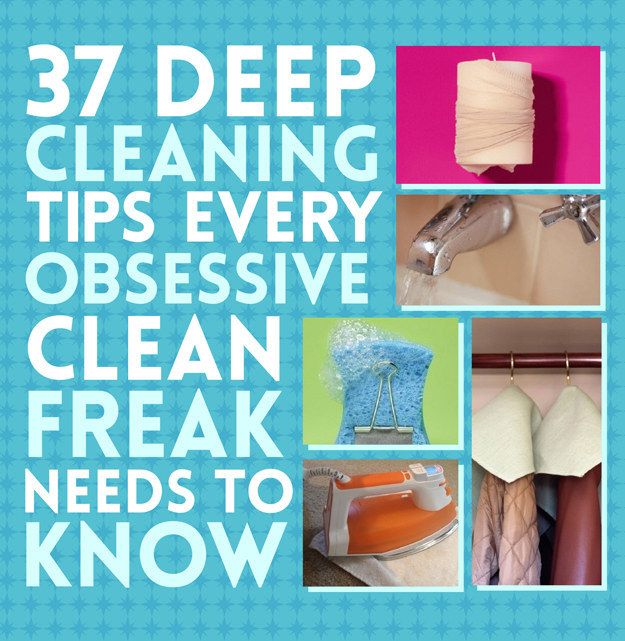 Unfortunately, the compulsive cleaning is never quite sufficient, and thus, the feared consequence persists triggering further obsessive-compulsive cleaning.
Unfortunately, the compulsive cleaning is never quite sufficient, and thus, the feared consequence persists triggering further obsessive-compulsive cleaning.
The OCD Cycle
In order to understand why people clean obsessively, it’s important to know the OCD cycle.
1. Obsessions
The obsession is an involuntary and intrusive thought or sensation. It triggers cleaning behavior by bombarding the OCD sufferer with fears that a particular surface or object is somehow contaminated or wrong.
2. Anxiety
The obsessive thought leads to a build-up of unbearable anxiety.
3. Compulsive Behavior
In order to alleviate anxiety, the individual resorts to their compulsive cleaning rituals. They might restrict their activity to one area — some OCD cleaners focus on handwashing and showers or disinfecting doorknobs and light switches — or it could extend to their entire lives.
4. Temporary Relief
Cleaning brings relief from the obsessive fears. However, the relief is only temporary. Soon, obsessive thoughts of contamination return, and the cycle repeats again many times in a single day.
Soon, obsessive thoughts of contamination return, and the cycle repeats again many times in a single day.
Breaking the Cycle of Obsessive Cleaning
The key to stop OCD cleaning rituals is to break the cycle. This can be accomplished by taking the following steps.
Confront Your Fears
Rather than avoid intrusive thoughts of contamination, the key is to face them and try to resist the temptation to respond with compulsive cleaning. The goal is to separate the thought from the action. In time, exposing yourself to the feared trigger will reduce the intrusive obsessions and subsequent discomfort.
Be Mindful
You can anticipate OCD urges, and eventually lessen the need to clean the same thing repeatedly, by being mindful when you clean an area rather than simply responding mindlessly to the trigger.
Accept Uncertainty
OCD thrives on uncertainty and is inherently a doubting disease. When “what if” thoughts begin to pile up, the best approach is to accept that no matter how much you clean and sanitize, you have no control of anything being absolutely clean.
Renewed Freedom Center Can Help
To learn more about how we can free you from the grips of OCD, contact us today. Our specialists are available to answer your questions or concerns, and help you determine whether one of our programs is right for your needs.
What kind of neuroses does the craving for cleaning speak of — INMYROOM
There is nothing wrong with blowing off dust particles and putting everything in order in love. In the absence of a desire to clean up - too. Both are absolutely normal for a balanced person. So why do some people need neatness that turns into sterility?
Risk group
Perfectionists
Thirst for order and perfectionism go hand in hand — excellent organizers and effective performers bring any business not just to a point, but to an exclamation mark.
An extreme degree of perfectionism speaks of obsessive-compulsive disorder.
People of strict rules
Neat people often adhere to strict social norms: accuracy in their minds is inextricably linked with integrity.
For all their apparent decency, neat people are not distinguished by increased empathy, and their level of kindness is no higher than that of those who carelessly scatter things around the apartment. But the obsession with order accumulates internal discomfort: a person becomes a slave to habits and rituals.
Rationalists and systematizers
Those who like to drive themselves and others into rigid limits: do not spoil, do not break or break anything. Blocking spontaneity with the same care that they lock cupboards or arrange stamps in albums, these people are driving themselves into traps - there is no place left for creativity and personal life in their world.
In addition, it takes sluts no more time to find the necessary trifles than it takes pedants to maintain order.
We have prepared this material together with our partner - cleaning service Qlean .
Especially for INMYROOM readers Qlean right now
is giving a 20% discount on your first order or one free option for the first cleaning as a gift:
washing the refrigerator inside and out
cleaning the oven 9002 cleaning the offer
900 valid until July 31, 2019: to use it, follow the links.
How to understand that you have a cleanliness mania (and where is the norm)?
The line beyond which the desire to clean up turns into a mania for cleanliness is easy to determine: instead of pleasure from pleasant things or surroundings, anxiety and anxiety appear.
Signs of anxiety
- You start cleaning here and there several times a day. All is not lost if you catch yourself doing this on your own, and not after comments from outside.
- Wash your hands after almost everything, too often and too thoroughly.
- You feel a growing desire to put things in order outside the house, and in someone else's home you look around suspiciously.
- You clean at an inconvenient time, put in a lot of effort, and experience exaggerated emotions: for example, frantically grasping at washing dishes three minutes before guests arrive.
- You do not control the time allotted for cleaning and delay the process in every possible way.

Quirks or injuries?
Psychologists say that there is always a serious cause for alarm behind external manifestations. But even at an appointment with a specialist, someone who asks for help will not immediately face the true threat - so the heroes of the Harry Potter books do not dare to call Voldemort by name.
Let's make a list of enemies who hide behind various phobias.
Clutterophobia: strong fear of disorder
By putting things in order, people seem to be trying to collect life from the rubble, to regain control over it. Often this happens to those who grew up in a not very prosperous environment.
Growing up and growing up, they tirelessly struggle with the non-existent dirt in their homes instead of getting rid of the garbage that fills their minds with the help of a psychologist.
Macbeth or Pilate Syndrome
Deception, betrayal, painful criticism or humiliation lead to a burning desire to remove imaginary pollution. Aggressive feelings arising from the inability to express emotions also lead to exhausting cleaning.
Aggressive feelings arising from the inability to express emotions also lead to exhausting cleaning.
Such people, for example, at the moment of a quarrel, begin to carefully clean things up or reproach their families for the ideal order. This seems to relieve stress, but actually demonstrates a desire to gain control over the situation.
Germophobia: fear of infection through touch
Germophobes are usually closed, they won’t shake hands once again and won’t smack on the cheek. It is they who ride the subway in masks, avoid contact with pets, and eventually try not to leave the house at all, have a hard time with the arrival of guests and roll up after them a grandiose cleaning.
It is very difficult to convince such people that their fears are unfounded - touching a dirty surface, a railing in a subway or someone else's doorknob, they experience a panic attack: spasms, shortness of breath, dizziness and tremors.
Does cleaning solve psychological problems?
Habitual activities provide temporary emotional relief through exercise. But they also make it impossible to adequately assess the situation and understand the reasons for the permanent struggle for purity.
But they also make it impossible to adequately assess the situation and understand the reasons for the permanent struggle for purity.
If you are lonely, a perfectly cleaned room can only aggravate stress: there is order, but there is no one to disturb it, and then what is all this for? And if family members are nearby, they may start to worry about you - after all, during constant cleaning, normal communication is hardly possible.
The desire for cleanliness should be taken as a signal: when you are able to treat life like a game, and accept yourself and others with all the advantages and disadvantages, the risk of mental problems will be minimal.
Sterile life: what psychological problems does perfect cleanliness in the house speak of?
What are called obsessive states
The endless stream of frightening information about the spread of the coronavirus from the media and social networks makes many people feel uncomfortable. Some people manage to resist stress, while others, with increased anxiety, fall into a panic state. The situation in the world and general hysteria causes symptoms of psychological diseases in the latter, which people have long overcome, obsessive-compulsive disorders also become aggravated or the first signs of OCD appear - obsessive-compulsive disorder. What it is?
The situation in the world and general hysteria causes symptoms of psychological diseases in the latter, which people have long overcome, obsessive-compulsive disorders also become aggravated or the first signs of OCD appear - obsessive-compulsive disorder. What it is?
Obsessions are intrusive unwanted thoughts, images that disturb a person. People get so stressed out by these addicted ideas that they may develop gastrointestinal problems, an elevated heart rate, a fever, or sweaty hands. Compulsions are repetitive rituals that people see as an overwhelming need. An obsession is a thought, a compulsion is an action by which people try to get rid of an obsessive thought.
Obsessive ideas, or super-valuable ideas, are the first step towards pathology. Anything can become a super-valuable idea: the idea of cleanliness, or the idea of a sporty toned body, the idea of vegetarianism... When a person begins to subordinate this idea and certain rituals associated with it all his life, it becomes a harmful element of life that brings suffering to the person himself and his surroundings ( read also : “Where does fitness addiction come from and should we fight it”).
If we consider the situation with the prevention of coronavirus, then the manifestation of OCD will not just be frequent washing of hands - for a person with a disorder, this ritual can take a very long time. For example, a person suffering from cleanliness neurosis needs to go outside. He puts on his coat - he goes to wash his hands, then he puts on his hat - he goes to wash his hands, he grabs his shoes - he runs to wash his hands. And the compulsion can last for an hour or more. That is, a person devotes a huge amount of time to cleanliness. Rituals for such a person are a way of protection. Virology aside, there are a lot of imposed superstitious rituals in the Russian cultural code as a whole, which, supposedly, should save us from something: if you return home for some thing, look in the mirror, if you leave for a long time, sit on the path, and so on. But all this, of course, does not carry real protective functions.
When and why might the super-valuable idea of purity arise? In addition, such people are highly sensitive, they are naturally anxious, they live in their heads, it is important for them to analyze everything, numbers, statistics are important to them, and their feelings seem to be turned off.
 As a rule, in childhood, people who can develop a neurosis of cleanliness were brought up with an emphasis on a sense of duty and responsibility, from an early age they were required to do everything perfectly, to be an example, to earn praise and approval for their impeccability. Under the yoke of parental prescriptions, when the mother deprives attention, ignores the baby because he got something dirty, spilled, did something carelessly, obsessive-compulsive disorder begins to develop in children. Such children try to do more, do better, live up to expectations, earn praise ( see also: "Coming from childhood: 4 psychological traumas that break our lives").
As a rule, in childhood, people who can develop a neurosis of cleanliness were brought up with an emphasis on a sense of duty and responsibility, from an early age they were required to do everything perfectly, to be an example, to earn praise and approval for their impeccability. Under the yoke of parental prescriptions, when the mother deprives attention, ignores the baby because he got something dirty, spilled, did something carelessly, obsessive-compulsive disorder begins to develop in children. Such children try to do more, do better, live up to expectations, earn praise ( see also: "Coming from childhood: 4 psychological traumas that break our lives"). The irresistible desire to justify other people's expectations remains even in adulthood. To develop a harmonious personality, kids in childhood must learn to live in the game, entertain themselves, have fun, rejoice. If a child from an early age behaves like an adult doing important things, in adulthood it will be difficult for him to cope with life's difficulties. It is difficult for such people to relax later, they do not know how to do this, their need for rest is not satisfied. And during the general panic due to the coronavirus, the idea of cleanliness and hygiene, of course, overwhelmed these adults more and more than anything else.
It is difficult for such people to relax later, they do not know how to do this, their need for rest is not satisfied. And during the general panic due to the coronavirus, the idea of cleanliness and hygiene, of course, overwhelmed these adults more and more than anything else.
The OCD process can be triggered by stress and psychological trauma if a person has a tendency to develop such disorders. Do not forget about the genetic predisposition. It is now believed that most neurological and psychological pathologies are in the genes.
Previously, it was believed that there was no difference in the manifestations of the obsession with cleanliness in men and women. But in the late 90s, gender differences were discovered. Before the age of 60, such obsessions of cleanliness and cleanliness often occur in men, and after 60 years - in women.
How to protect yourself from obsessive states
Obsessive-compulsive disorder cannot be completely eliminated, one can only make the neurosis less pronounced. But people suffering from this disorder do not feel safe, even at home, so they are constantly trying to clean it up, bring it to an ideal state. Neurosis of purity brings a lot of suffering to the person who experiences it and to his environment. After all, the whole life of such people depends on the performance of rituals: it is impossible to plan something, because you can’t even understand how long it will take to get ready and leave the house.
But people suffering from this disorder do not feel safe, even at home, so they are constantly trying to clean it up, bring it to an ideal state. Neurosis of purity brings a lot of suffering to the person who experiences it and to his environment. After all, the whole life of such people depends on the performance of rituals: it is impossible to plan something, because you can’t even understand how long it will take to get ready and leave the house.
In order not to fall into such a state, you need to check with your feelings more often. Am I comfortable now? Do I feel safe? There is a good exercise that helps to "ground". You need to close your eyes and feel how your feet are firmly attached to the ground, floor and any other surface. You can take a few small steps and realize that you are firmly on your feet and securely pressed to the ground. 15 minutes of this exercise will help reduce anxiety. If you panic easily, do not watch the news, now they give rise to extreme anxiety.